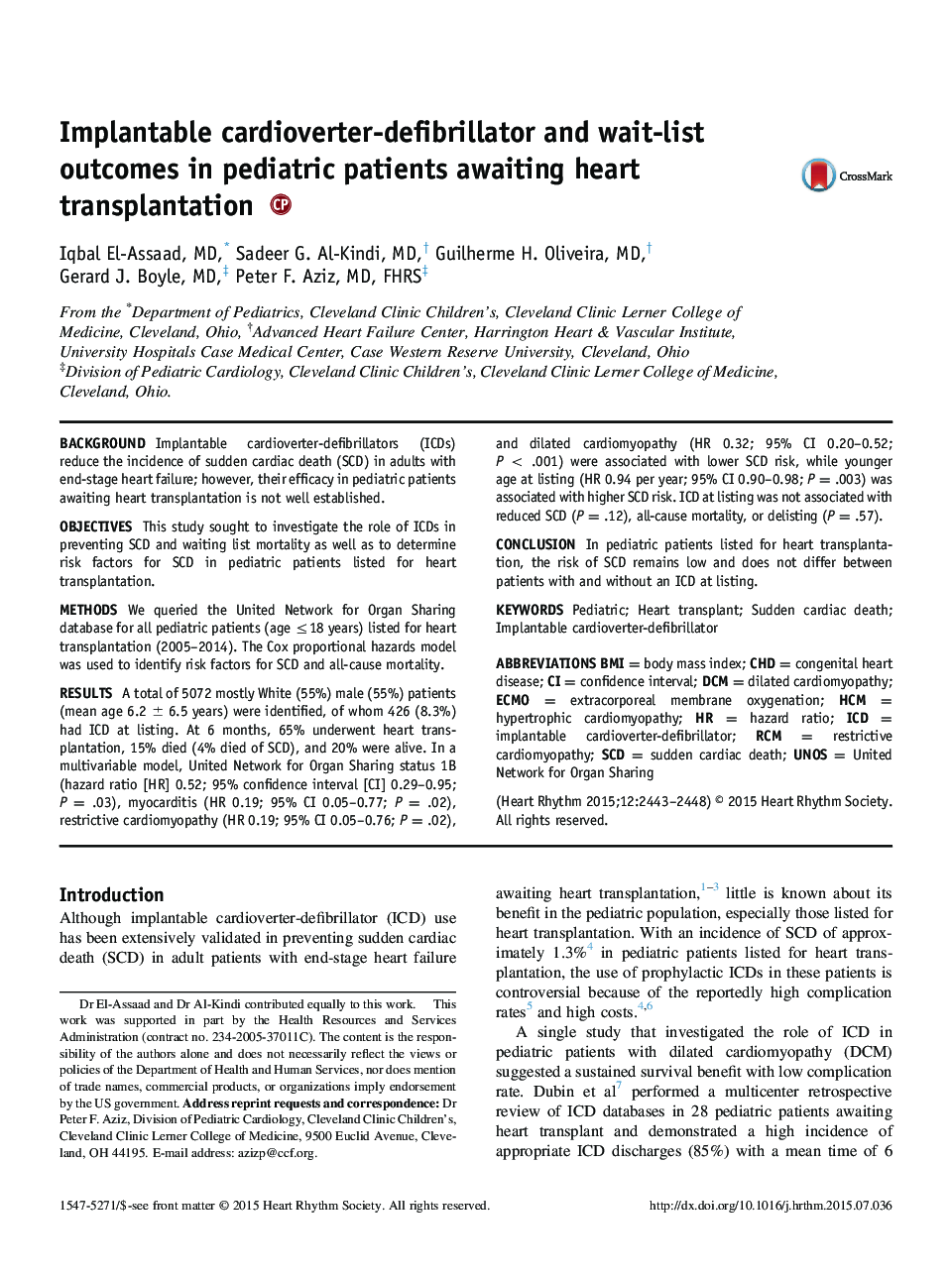| Article ID | Journal | Published Year | Pages | File Type |
|---|---|---|---|---|
| 2921801 | Heart Rhythm | 2015 | 6 Pages |
BackgroundImplantable cardioverter-defibrillators (ICDs) reduce the incidence of sudden cardiac death (SCD) in adults with end-stage heart failure; however, their efficacy in pediatric patients awaiting heart transplantation is not well established.ObjectivesThis study sought to investigate the role of ICDs in preventing SCD and waiting list mortality as well as to determine risk factors for SCD in pediatric patients listed for heart transplantation.MethodsWe queried the United Network for Organ Sharing database for all pediatric patients (age ≤18 years) listed for heart transplantation (2005–2014). The Cox proportional hazards model was used to identify risk factors for SCD and all-cause mortality.ResultsA total of 5072 mostly White (55%) male (55%) patients (mean age 6.2 ± 6.5 years) were identified, of whom 426 (8.3%) had ICD at listing. At 6 months, 65% underwent heart transplantation, 15% died (4% died of SCD), and 20% were alive. In a multivariable model, United Network for Organ Sharing status 1B (hazard ratio [HR] 0.52; 95% confidence interval [CI] 0.29–0.95; P = .03), myocarditis (HR 0.19; 95% CI 0.05–0.77; P = .02), restrictive cardiomyopathy (HR 0.19; 95% CI 0.05–0.76; P = .02), and dilated cardiomyopathy (HR 0.32; 95% CI 0.20–0.52; P < .001) were associated with lower SCD risk, while younger age at listing (HR 0.94 per year; 95% CI 0.90–0.98; P = .003) was associated with higher SCD risk. ICD at listing was not associated with reduced SCD (P = .12), all-cause mortality, or delisting (P = .57).ConclusionIn pediatric patients listed for heart transplantation, the risk of SCD remains low and does not differ between patients with and without an ICD at listing.
